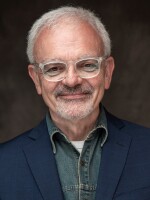RENEE MONTAGNE, host:
This is MORNING EDITION from NPR News. I'm Renee Montagne.
DON GONYEA, host:
And I'm Don Gonyea. According to Cuban government broadcasts, Fidel Castro is alive and recuperating. In a statement that was read on state TV last night, the Cuban leader said he was in good spirits but gave no indication of when he might return to power. Castro temporarily handed control of the government over to his younger brother Raul on Monday, following surgery stop stomach bleeding.
NPR's Lourdes Garcia-Navarro is in Havana. Good morning.
LOURDES GARCIA-NAVARRO reporting:
Good morning.
GONYEA: So what else was in Castro's statement?
GARCIA-NAVARRO: Well, Don, the statement that was read out went on to say that he, Castro, would have a long recovery and that his doctors wouldn't have a prognosis for sometime. It also said that there was no real good news yet -that he was stable, but it suggested that he wasn't going to bounce back immediately. Finally, he said not to expect many more health updates. He said his condition was a quote, state secret, and it had to be kept that way because the enemies of Cuba - and by this, of course, he means the United States -would try and use his illness against the nation.
So I think the underlying message here was actually write a sober one. There were no words of comfort, no sunny optimism - but rather a statement that I think is preparing Cuba for a long period of uncertainty.
GONYEA: And, again, to be clear, this statement by Castro was read by someone else. He still hasn't been seen or heard from publicly since announcing the surgery and the hand over of power to Raul, right?
GARCIA-NAVARRO: Yeah, Castro has not appeared in stills or video or audio. There is no way of knowing if he is really writing these communiqués or what his condition really is. There are definite suspicions about Castro's real condition. Outside Cuba, people are even looking at the signatures on these communiqués purportedly from him to see if it really looks like his handwriting, which is to say there's a lot of scrutiny and a lot of concern which this last statement I don't think has helped to alleviate.
GONYEA: So has Raul Castro appeared at all publicly or issued any statements?
GARCIA-NAVARRO: No. No, he hasn't. And I think that is what everyone is waiting for. But there are probably two reasons why we haven't seen him yet. First, I think they want to show that Raul's new position is a temporary one and that Fidel is still the leader of Cuba.
Second, Raul will be the ultimate successor of Fidel, it seems. And if this is a kind of practice run for the day when Fidel actually dies, then they're going to want this to go as smoothly as possible. And that means, I think, giving every appearance of normality - no drama, no buildup. I think they're trying to get the Cuban people used to the idea of Raul as leader, and that means -perversely, here - not doing anything overt.
GONYEA: And is he a really well known figure there, Raul?
GARCIA-NAVARRO: Certainly a well-known figure. I mean, he is Fidel Castro's younger brother. He has been the head of the military forces and the police almost since the inception of the Cuban revolution. That's almost 50 years now. People do know him. But he doesn't have, of course, the charisma of his brother. People don't identify with him as closely as they do with Fidel. So in many regards, he is an unknown quantity.
GONYEA: We really are in an unprecedented place for Cuba and the Castro era here. What is the mood among the people there, as best you can tell?
GARCIA-NAVARRO: Well, as best I can tell - obviously, people don't speak openly here, but on the surface, there's calm. There's no build up of police. Everything's quiet. And I think that's the plan. I think they want to show that this is a natural course of events, and nothing has changed - even though, of course, it has.
I think the Cuban people are basically waiting to see what will happen. There's certainly a sense of worry, also a sense of expectation. The emotions Fidel brings up here are quite complicated. Some people adore him. Others don't. He's been the ruler of Cuba for 47 years - over generations, in fact. So this is uncharted territory. And that, of course, is going to cause anxiety on the streets. People have spoken to me and said that they wish him a speedy recovery, but they're also looking now towards what Cuba may look like after his demise - something that was unthinkable only a few years ago.
GONYEA: NPR's Lourdes Garcia-Navarro in Havana. Transcript provided by NPR, Copyright NPR.







